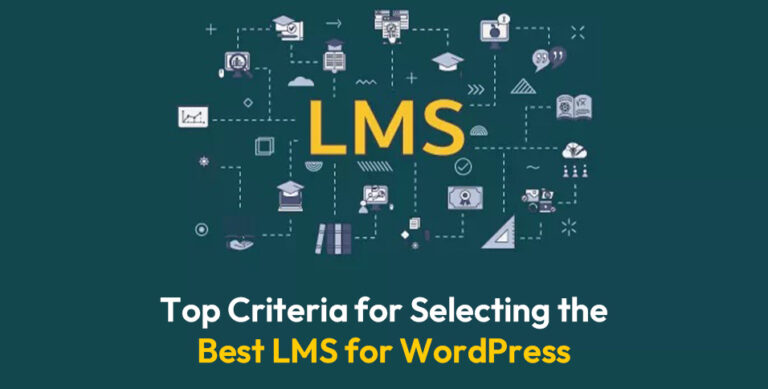Managing courses and training programs can significantly benefit from utilizing a learning management system (LMS). For individuals operating a WordPress website, seeking an LMS solution that aligns with their requirements is crucial to making an informed decision about the best option available to them on this platform. In this article, we will delve into the factors to take into account when choosing an LMS specifically designed for WordPress sites.
Scalability
When selecting an LMS system for your business needs, it is crucial to consider its scalability as your company expands over time. A reliable LMS should offer smooth scalability features that enable you to accommodate users and courses while maintaining optimal performance. Look for functionalities such as site support, bulk user administration, and the capability to manage high volumes of simultaneous users. Pick from the best LMS for WordPress before making a decision.
Ease of usability
It’s essential for both admins and users to have a user-friendly interface when using an LMS on the WordPress platform. Make sure to choose an LMS that’s simple to set up and has user-friendly features. The admin dashboard should be well structured so admins can manage courses effectively and users can find content easily.
Course Creation and Content Management
An LMS primarily aims to deliver courses efficiently, so it’s important to assess the course creation features provided by various platforms. Look for elements like ready-made templates or themes for course designs and multimedia support, such as videos and audio files. Additionally, consider tools for tracking progress, quiz features, and assessment options when evaluating platforms.
Ensuring learners can easily access course materials is crucial for content management. Hence, choosing an LMS that offers strong file storage capabilities and advanced features for organizing content like folders or categories is essential.
Integration Options
When setting up a learning environment on your WordPress website with an LMS system, it is crucial to think about how it can work together with other tools or plugins you currently use or intend to add later. For instance, if you aim to merge e-commerce features and market your courses, the LMS must smoothly connect with known WordPress ecommerce plugins.
Ensure that the learning management system (LMS) you choose can connect with analytics tools or learning record stores to monitor learner engagement and analytics.
Mobile Compatibility
In the era we live in nowadays, individuals anticipate having the ability to access educational resources and training materials through their smartphones or tablets without any hassle involved. Therefore, it’s essential to choose a Learning Management System (LMS) that is designed to adapt well to different devices and mobile screens for a seamless user experience across platforms. Seek out LMS solutions that either provide specific mobile applications or are built with fully adaptable designs to meet these requirements efficiently.
Security and Data Privacy
When you oversee courses, you must deal with delicate learner information like personal details and login credentials and track course advancements and the progress of individuals taking the course. It is crucial to select a learning management system that prioritizes security features such as HTTPS and SSL encryption alongside routine security assessments.
To safeguard data privacy effectively, make sure to search for platforms that adhere to recognized industry regulations, such as the General Data Protection Regulation (GDPR) or the Children’s Online Privacy Protection Act (COPPA).
Support and Documentation
When choosing an LMS for the WordPress platform, support and documentation are factors to consider. It’s important to opt for LMS providers that provide documentation such as user guides, tutorials, FAQs, and troubleshooting resources. Having these resources available can assist administrators in overcoming any obstacles they face when setting up or using the LMS.
When selecting an LMS provider, make sure to consider customer service options such as email support or live chat—it’s crucial to opt for one that provides quick and reliable support to deal with any concerns efficiently.
In summary
When deciding on an LMS for your WordPress website, it’s essential to consider the factors listed above to ensure you’re making an informed choice. Don’t forget to assess scalability options, user-friendliness for both administrators and learners features for creating courses, integration with tools, mobile friendliness and security aspects.
When you carefully evaluate each factor based on your needs and preferences, you can choose the ideal LMS platform that fits your company’s objectives and provides a smooth learning journey for your WordPress users.
Also Read: SEO for WordPress: 13 Must-Have Plugins for Success















